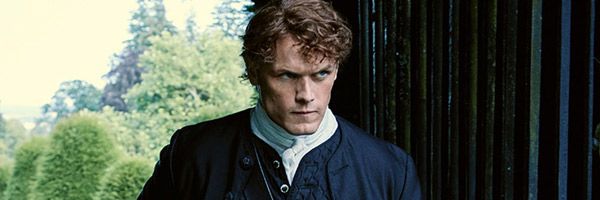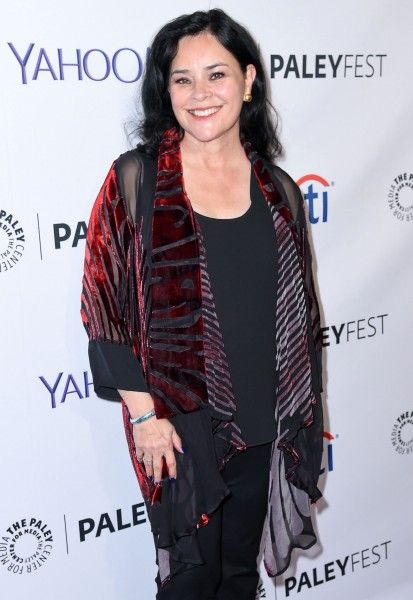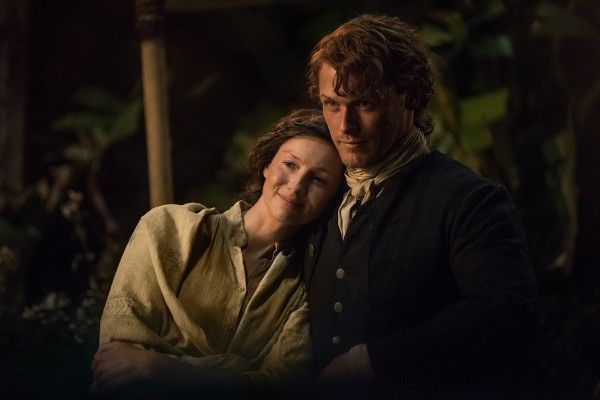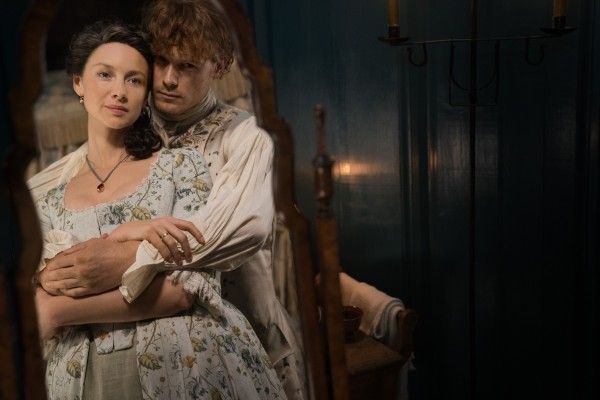At the TCA press day for the upcoming PBS series The Great American Read, Outlander author Diana Gabaldon was part of a panel (which also included Meredith Viera and Nicholas Sparks) to talk about becoming an author, seeing her work adapted for television, and some of her own favorite literature. In the eight-part PBS series, Viera will go through the America’s 100 best-loved novels (as voted on by this survey, which is currently open), and will explore what these choices might have to say about American culture. Gabaldon was of course asked about her favorite book: “Well, trying to pick one favorite book out of the universe of books is impossible,” she shared. “It’s a dead heat between Alice’s Adventures in Wonderland and Lonesome Dove. And having made that decision, I was thinking what do these books have in common? You know, why do I like them both so much? I finally decided that it’s because they share what my husband refers to, in reference to my work, as the 'One damn thing after another' school of fiction.”
Some of the most interesting parts of the panel discussion, though, were Gabaldon’s thoughts on writing, and her own process. “I don’t write in a straight line and I don’t plan stories out ahead of time. I, in fact, don’t actually know what’s going to happen in a book,” she said. “I began writing Outlander for practice. I knew I was supposed to be a novelist, but I didn’t know how; and I decided the way to learn was to actually write a novel. So, Outlander was my practice book. I was never going to show it to anyone, so it didn’t matter what I did with it. It didn’t have to have a genre, so I used anything that I like. And I’ve been reading since I was three years old. I like a lot of stuff, and I used it all.”
Gabaldon told a story about how she was first discovered: posting on a CompuServe message board focused on discussing literature. “I had always known I was supposed to be novelist, and when I was 36, I said, ‘Well, you better start writing a novel, then.’ she said. “Well, actually what I said was ‘Mozart was dead at 36. You better get started.’ So I did.” It all started there when she had an argument with a man who was trying to tell her what it feels like to be pregnant (she has three children), and she corrected him by sharing a story excerpt she had written where a woman describes it to her brother. People read it and wanted more, so she continued writing excerpts until someone on the board recommended a literary agent. “My husband says I am congenitally unable to lose an argument, and he’s right. That’s why I overcame my fear of showing what I was writing, in order to win an argument, and I did, as a matter of fact, win the argument.”
One of the most interesting questions asked of the panel was, after a work has been adapted into a movie or TV show, do the authors see the actors in their minds when they are writing, or do they see their original creations? Gabaldon answered that when it comes to the Starz series, “I know that for a number of readers, because they say so on my Facebook page and so forth, the vision of the actors does, in fact, supersede their original vision of what the characters looked like. It doesn’t for me. They still look the same way they’ve always looked.” However, when it came to casting Sam Heughan, she knew at once that he was right for the part:
“First time I saw Sam Heughan, though, they sent me his audition tape for Jamie Fraser, and I was looking up his pictures on my way to wherever I was going, and he has a very limited filmography, not many pictures, and, frankly, the ones that he had up were strange. Anyway, so, when I saw the audition, I didn’t know what to expect. He appeared, and in five seconds into it, I was saying he doesn’t look anything like his photos. He looks fine. Five seconds more, he was gone, and it was just Jamie Fraser right there. I recognized him immediately.”
Gabaldon is currently working on her ninth Outlander book, and said she’s currently re-reading its predecessor, Written in My Own Heart’s Blood, because “there are pieces where I encounter, you know, an emotional thread that I had dropped in the last book. So, I will go back to read through it and pick that up so it will come into the new book with its original power.”
As for her writing schedule, she shared that, “When I decided to write a novel, I had two full time jobs and three children under the age of six, so I don’t want anyone telling me they don’t have time to write a book, but I learned to work in the middle of the night, and I still do that. So usually I’ll tuck my husband in bed around 9:00 or so, and then the dogs and I lie down on the couch for a bit, and I’ll fall asleep for an hour or two. And then I get up and the dogs get a bone. I get a Diet Coke. We go back to work until 4:00 in the morning. So that’s the main time. I can write at other times of the day, it’s just that’s when people leave me alone.” She went on to say that,
“I learned how to not have writer’s block when I was writing my Ph.D. dissertation, because I did have terrible writer’s block on that, as anyone would. It was entitled Nest Site Selection of the Pinyon Jay, Gymnorhinus Cyanocephalus, or, as my husband says, “Why birds build nests where they do and who cares anyway.” [It was] the only time in my life I have ever had depression, but I had it then. Anyway, I quickly learned that […if I] spent the entire day reading “Nero Wolfe” mysteries, I would feel even more depressed. Whereas, if I could write down progress, if I could write analyze the data for figure 2.2, I would feel this surge of positive reinforcement."
"So, I learned to force myself to write in order to report on it, as it were. I keep track of every single word I write. When I stop and go to the bathroom or whatever, I write at the top of my file how many words are in that file since the last time I logged off. And you can see the total mounting up little by little. Some days it’s 40 words. Some days it’s 1500, it’s whether I’m working on that scene or on several scenes at once. It’s which ones are working. Sometimes they just cut loose. Sometimes they don’t. Basically, the only bottom line is you just keep writing.”
The Great American Read premieres September 11th on PBS; Outlander returns to Starz this November.





